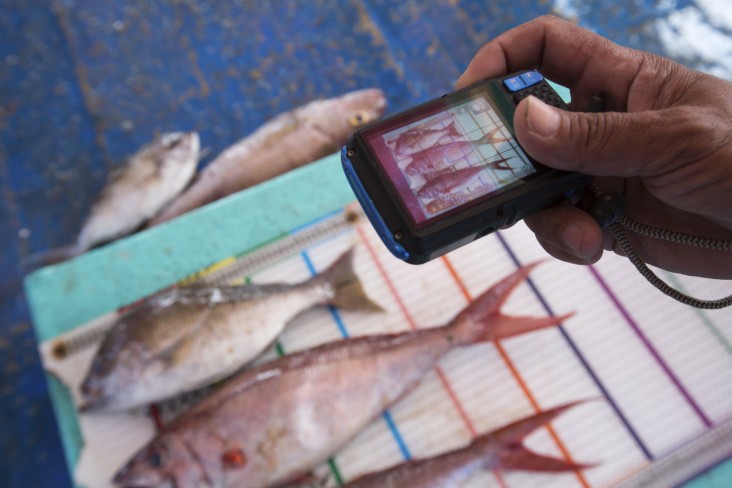Speeches Shim

In the $130 billion global seafood market, snapper and grouper are best sellers, and Indonesia is the top producer of these fish worldwide. These tasty fish are enjoyed sautéed as fillets and in fish sandwiches. But their growing popularity is dwindling Indonesia’s supply.
Fishers and businesses have struggled to keep pace with the exploding global demand without harming the ocean. Snapper and grouper are often caught before they can reach maturity, which jeopardizes the wild population.
Over the past two decades, however, the global fishing industry has begun to shift toward more sustainable practices. This is due in part to campaigns from environmental organizations and industry experts rightly concerned about fish supply.
But sustainable fishing practices can be expensive and burdensome for fishers. Companies are hard-pressed to invest in such solutions when doing so hurts the bottom line and puts the livelihoods of fishers at risk.
As U.S. seafood company Norpac Fisheries Export knows too well, depleted stocks means no profit. “Fish caught before they have the ability to spawn cannot contribute to the natural growth of the population,” said Norpac founder Thomas Kraft. “[But] too often, only fishers are asked to make sacrifices by adopting sustainable fishing practices, which increases their workload and negatively impacts their livelihoods. It is important that the industry as a whole commit to responsible fishing and mitigate the burden on fishers.”
In partnership with USAID and The Nature Conservancy (TNC), Norpac and nine other companies have agreed to not buy (or sell) immature snapper and grouper from Indonesia through a fisheries improvement program. As part of the program, companies will share data, such as catch origin and fish size, with the Government of Indonesia so that it can make informed decisions about how to manage Indonesia’s fish supply. They will also institute more sustainable practices under TNC’s fisheries improvement program framework, one of the most stringent-- and thus impactful-- in the world.
Peter Mous, TNC’s Director of Fisheries for Asia Pacific, said: “We look forward to engaging with other companies interested in making a commitment to the sustainability of this fishery, as Norpac has.”
“Our goal is for this effort to be a model for similar fisheries in the region and around the world,” added Kraft.
As the country’s fish supply stabilizes, its fishers will enjoy steadier incomes and prosperity that lasts, and as more partnerships with companies like Norpac take hold, seafood consumers around the world will continue to enjoy Indonesian snapper and grouper.
About this Story
USAID supports Indonesia’s vision for productive and sustainable oceans. In cooperation with TNC, USAID secured commitments to fisheries improvement programs from ten companies: Norpac Fisheries Export; Anova Food, LLC; CV. Bali Sustainable Seafood; LP Foods PTE Ltd.; Netuno USA Inc.; PT. Bahari Biru Nusantara; PT. Graha Insan Sejahtera; PT. Kharisma Bintang Terang; PT. Solusi Laut Lestari; and PT. Sukses Hasil Alam Nusaindo (Shanindo).
To date, USAID SNAPPER has supported the Government of Indonesia to improve fisheries management across 11.1 million hectares of Indonesian waters, an area roughly the size of the state of Virginia, advancing Indonesia’s self-reliance in sustainable fisheries management.

Comment
Make a general inquiry or suggest an improvement.